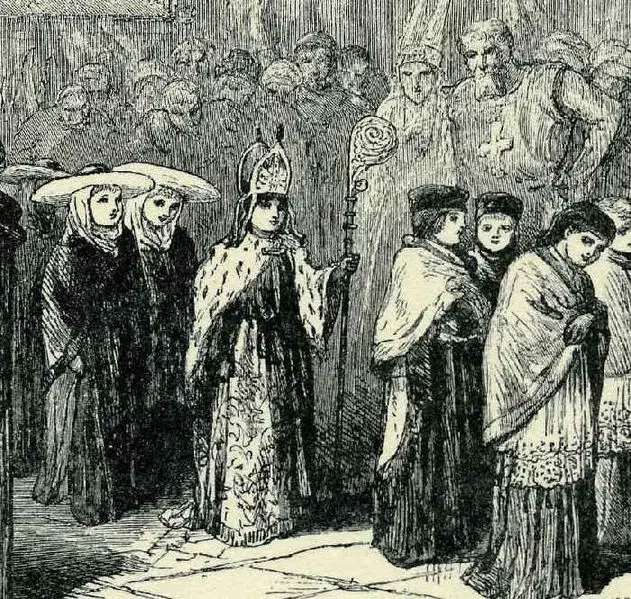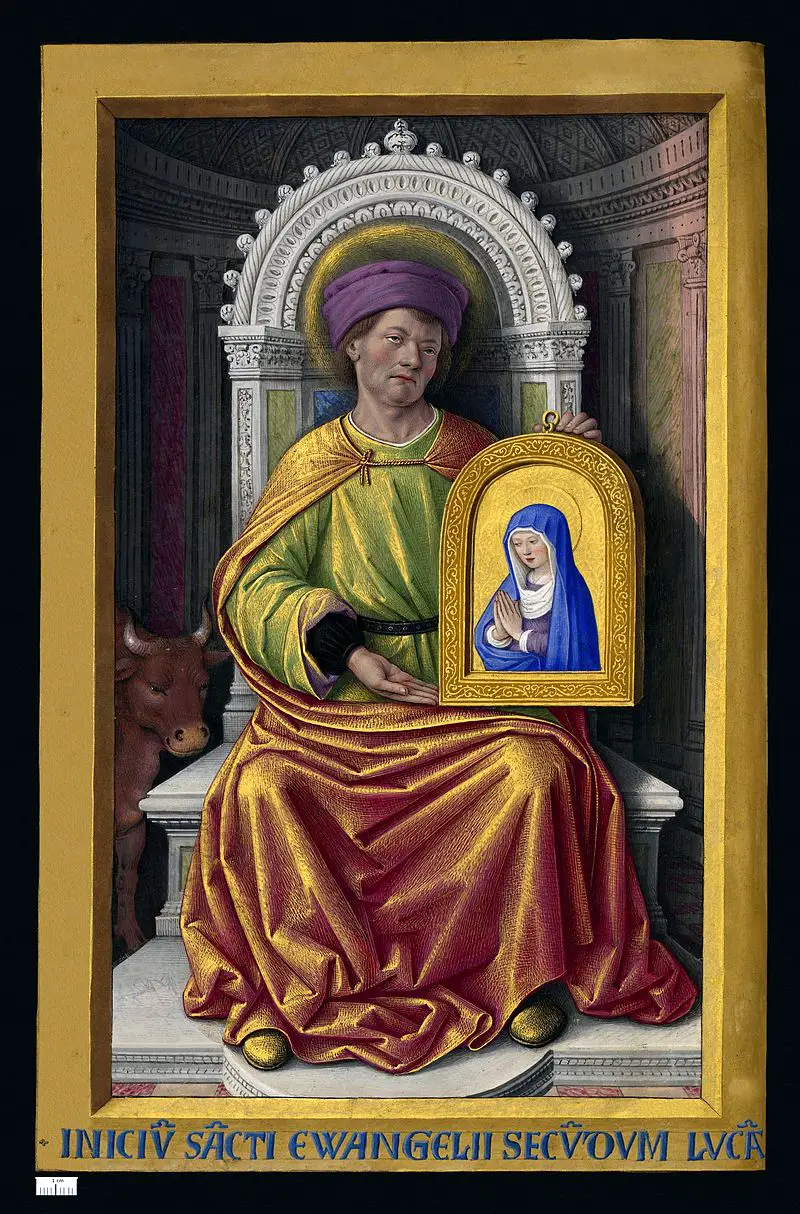1 November – The Feast of All Saints
All Saints Day was the celebrated on 1st November every year. It was a feast day in honour of all the saints and martyrs and was established because there were not enough days in the year to commemorate the lives of all the saints. Pope Urban IV said of it: “Any negligence, omission and irreverence committed in the celebration of the saints' feasts throughout the year is to be atoned for by the faithful, and thus due honor may still be offered these saints.”
2 November – The Feast of All Souls
The day after the Feast of All Saints was the Feast of All Souls, a time to remember the souls in Purgatory who might not have masses or prayers being said for them. Bells would be rung the night before All Souls Day to comfort the souls and to let them know that they were being remembered and then masses were said for them on All Souls Day. Bread was baked in honour of these troubled souls and it was given out to the poor in the hope that the act of giving on behalf of these souls would help them get out of Purgatory.
11 November – Martinmas
11th November was the Feast of St Martin of Tours, a 4th century Hungarian born man who grew up in Pavia, Italy, and who knocked on the door of his local Christian church at the age of 10, begging to be made a catechumen, i.e. one who is receiving training in doctrine and discipline before baptism. Martin followed his father into the Roman army at the age of 15 and a story tells of how, when he was about eighteen years of age, he cut his woollen cloak in half with his sword and gave half to a beggar to keep him warm. He then had a dream where he saw Christ surrounded by angels and wearing the half of the cloak that Martin had given to the beggar. Christ then turned to his angels and said, “Martin, as yet only a catechumen, has covered me with his cloak.” This dream caused Martin to be baptised and to give his life to God. Martin then found that his Christian conscience was incompatible with his duties as a soldier. He refused to fight at a battle, saying “I am a soldier of Christ. I cannot fight”, and was jailed for a time for cowardice. He spent the next few years living as a monk.
In 361, he was consecrated at Bishop of Tours, in France, after being tricked by the people of Tours. He was not interested in becoming the new bishop, but the people wanted this charitable and pious man as their bishop and so tricked him into visiting Tours to visit a sick woman. When Martin arrived in the city the people surrounded him, forcing him to accept their will. Martin felt it was his Christian duty to convert non-Christian to the faith, and so travelled from house to house speaking to people about Christianity. He was also committed to destroying pagan places of worship. It is said that when he tried to persuade some pagans to fell a pine tree they worshipped, they agreed to do so but only if Martin stood directly in its path. He agreed and as it started to fall he made the sign of the cross and the tree miraculously missed him.
Martin died on 8th November 397 (or somewhere between 395 and 402) and was buried on 11th November in the Cemetery of the Poor.
In medieval and Tudor times, Martinmas was the traditional day for slaughtering animals. The Tudor Monastery Farm team explain: “This served two purposes. It took the strain off of the farms in trying to keep alive large animal stocks and it ensured a good source of meat throughout the winter months.” It wasn't just farms that would keep and slaughter animals, it was common for families to have a family pig that would be killed at Martinmas and the meat salted to preserve it. In her book “The Tudor Housewife”, Alison Sim writes: “If the pork was salted hot, it took two ounces of salt for each pound of meat, plus another two ounces of saltpetre. If the pork was soaked in brine instead, then the brine had to be strong enough for an egg to float on it. According to my own experiments, that meant using at least five ounces of salt for each pint of water. No wonder salt was treasured.”
The old English and Spanish saying “His Martinmas will come as it does to every hog” (A cada cerdo le llega su San Martín), meaning “he will get his comeuppance”, refers to the Martinmas slaughter. Where I live in Andalucia, “la matanza”, the annual slaughter of pigs, is still carried out around 11th November and it is still traditional for families in rural areas to rear a pig annually for meat. Families and friends get together for the slaughter. I've never been to one – I'm not sure I fancy it – but it's supposed to be a combination of celebration and work. Spaniards pride themselves on every bit of the pig being used, hence the Andalucian phrase “the only part of a pig you can’t eat is its squeak/squeal”, so as the carcass is butchered sausages are made, blood is drained for “morcilla” (blood sausage), and parts that need eating straight away are cooked and eaten, washed down with plenty of homemade wine and beer.
17 November – Accession Day
Accession Day was celebrated throughout the reign of Elizabeth I and the reigns of many of her successors, and commemorated the day that Elizabeth I came to the throne on 17th November 1558. As well as Accession Day, it was also known as Queen Elizabeth's Day or Queen's Day and was celebrated with the ringing of bells, processions, the burning of an effigy of the Pope, and special tilts in which knights not only jousted but also dressed up and took parts in special pageants involving poetry and theatre.
30 November – The Feast of St Andrew
This was the feast of St Andrew the apostle, who is also the patron saint of Scotland. In Mary I's reign, it became a day to celebrate the reconciliation of England and the papacy due to it being the anniversary of that reconciliation in 1554. On that day in 1554, Cardinal Reginald Pole, papal legate, announced to Parliament and the King and Queen:
“And we, by the apostolike authoritie given unto us by the most holie lord pope Julius the third […] do absolve and deliver you, and every of you, with the whole realm, and the dominions thereof, from all heresie and schism, and from all and every judgements, censures and pain for that cause incurred. And also wee do restore you againe to the unity of our mother the holie church [...]”
It was decreed that on 30th November every year “a solemn procession shall be held, in which not only the clergy of every place, but also the faithful members of Christ of the secular order, shall gather and renew the memory of so wonderful a blessing received from God... and that on the same day, in the church from which the procession shall set out, during the solemn rites of the mass, a sermon shall be preached to the people in which the reason for this solemnity shall be explained.”




Leave a Reply